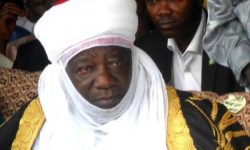Who are the Yorubas
The Yorubas are a Nigerian tribe, originally and predominantly found in the southwestern area of Nigeria, with significant populations in neighboring countries such as Benin, Togo, Ghana, Cote D'Ivorie, Siera Leone and Gambia. The Yorubas are one of the largest ethnic groups in Nigeria and Africa, estimated to number about 50 million people, characterized by a rich and complex history that has shaped their cultural, religious, and social systems. The Yorubas are known for their vibrant culture, dressing, traditional religious practices, sophisticated political systems, and significant influence on the arts, music, and literature.
History and Origin of the Yorubas
According to history, the Yorubas originated from the ancient city of Ile-Ife, currently located in Osun State in the Southwestern part of Nigeria. Ile-Ife is considered the spiritual and historical heart of the Yoruba people. Yoruba mythology believed that Ile-Ife is the place where the world was created by the god, locally referred to as Oduduwa. Oduduwa is regarded as the progenitor of the Yoruba people. Yoruba settlements, towns, cities, and kingdom are believed to have been orignated by descendants of Oduduwa. These sons of Oduduwa such as Oranyan, Okanbi, Ojugbelu and Arere and their grandchildren became the rulers of various Yoruba kingdoms such Oyo, Ife, Ijebu, Ekiti, Benin and others. Each had each its own political and cultural influence.
Geography and Demographics
Today, majority of Yorubas live in southwestern Nigeria, in cities such as Ile-Ife, Lagos, Ibadan, Ijebu Ode, Ado Ekiti, Akure, Ibadan, Badagry, Abeokuta, Ilorin, Offa, in states such as Lagos, Oyo, Ogun, Ondo, Ekiti, Osun, and Kwara.
Smaller populations of Yorubas are found in Benin Republic and Togo, where they also have a large historical presence.
Due to the transatlantic slave trade, Yoruba descendants can also be found in the Diaspora, notably in parts of the Americas, including Cuba, Brazil (where they are known as the "Nago"), Trinidad, and the United States.
Language
Yoruba, the language of the Yoruba people is part of the Niger-Congo language family. It is spoken by millions of people in Nigeria and surrounding countries, especially in West Africa. The Yoruba language has many dialects, like Ijebu, Awori, Oyo, Egba, Ijebu, Igbomina, Ijesha, and Ondo. The Yorubas also have a rich oral tradition that includes proverbs, poetry, songs and praise singing and chanting (oriki).
Religion and Spirituality
The Yorubas are liberals with a complex religious system that includes both traditional beliefs and practices (isese), as well as a large population of Christians and Muslims.
Traditional Religion
The Yoruba traditional religion involves the worship of deities known as Orishas (or Oshas). Each Orisha governs different aspects of life, nature, and the cosmos. Notable Orishas include Sango (god of thunder), Ogun (god of iron and war), Osun (goddess of fertility and love) and Obatala (god of wisdom and purity).
When it comes to sprituality, the Yorubas places great importance on honoring their forefathers and ancestors (Egungun) who are believed to continue influencing the lives of their descendants from the spirit world (Ara Orun)
Islam and Christianity
A large population of the Yorubas, especially in cities like Ilorin, Iwo, Ijebu Ode, Ikorodu and Ibadan practice Islam. The introduction of Islam to Yoruba lands dates back to several centuries, through trade and war. Today, Yorubaland has a significant number of prominent Islamic clerics.
Christianity was introduced to Yorubaland during the colonial era, and today it has a strong following among the Yorubas. Initially, many Yoruba Christians belong to denominations such as the Anglican, Roman Catholic, Methodist, Baptist as well as independent African churches. Today, there is a very large population of Yoruba christians who belongs to mega-churches founded by Yoruba pastors such as the Redeem Christian Church of God, Winners Chapel and the Mountain of Fire Ministry.
Political and Social Structure
The Yoruba have a long history of organized political systems centered around villages and kingdoms. These kingdoms were ruled by kings known as Obas, who held both political and religious authority. Some of the most prominent Yoruba kingdoms are:
Oyo Empire: The Oyo Empire was one of the most powerful and influential Yoruba kingdoms, known for its military prowess and trade networks. The ruler of the Oyo Empire was known as the Alaafin of Oyo (Iku Baba Yeye). The Oyo Empire has a sitting council known as Oyo Mesi. The Oyo Mesi work hand in hand with the kings and they are responsible for selecting new Obas when the old one dies.
Ile-Ife: Ile-Ife is regarded as the cradle of Yoruba civilization. The paramount ruler, the Ooni of Ife, is considered the spiritual leader of the Yorubas.
Benin Kingdom: The Yorubas also have historical ties to the culturally rich and ancient Benin Kingdom, where cultural and political exchanges influenced both societies.
Culture and Arts
The Yorubas are lovers of arts and culture. They have strongly contributed to African arts, particularly in sculpture, beadwork, theater and textile design. Some of their notable cultural elements include:
Sculpture: Yoruba artists are renowned for their intricate bronze, terracotta, and wooden sculptures, which often depict religious and royal figures. Notably wooden cultures are Ere Ibeji which depicts the multiple births in many Yoruba towns. The bronze heads of Ife are also considered some of the finest examples of African art. T
Music and Dance: Yoruba music is characterized by the use of various types of drums notably the talking drum (Dundun), the Bata and Gbedu drums. These drums and many other instruments such as sekere, plays a significant role in religious ceremonies, festivals, and general entertainment among the Yoruba people. Every event in Yorubaland calls for a celebration. The work of legendary Yoruba acts such as King Sunny Ade and KWAM 1 (King Wasiu Ayinde Marshal), and new acts such as Wizkid (Ayo Balogun), Davido (David Adeleke), Olamide Adedeji, (Olamide), Asake (Ahmed Ololade) and Tiwa (Tiwa Savage) has been influenced by the Yoruba culture.
Literature and Proverbs: Yorubas have a rich oral literary tradition that includes storytelling (alo), poetry, proverbs, and philosophical sayings.These storytelling skills and tales are passed from one generation to another. The first African to win the Nobel Prize in Literature, Prof. Wole Soyinka drew his inspirations from Yoruba culture and mythology.
Economy
Historically, the Yoruba were mainly into agriculture, craftwork, and trade. The areas around Ile-Ife were known for their large cocoa plantations, were the Oyo and Ogbomoso axis were known for fruits production, notable cashew and mango. Yorubas were also known for their skills in weaving, pottery, and metalwork. Batik and Aso Oke production is very common in many Yoruba cities. Today, Yoruba cities like Lagos, Ibadan, Epe, Badagry and Agbara have become major urban centers, contributing to Nigeria’s economy through industries such as commerce, finance, and entertainment.
Notable Yoruba People
The Yoruba have produced many influential figures across different fields, including politics, literature, and the arts. Some notable Yoruba figures include:
Obafemi Awolowo: One of Nigeria's foremost independence leaders and statesmen.
Bola Ahmed Tinubu: Nigerian President
Wole Soyinka: Nobel Prize-winning writer and activist.
Fela Kuti: Legendary musician and pioneer of Afrobeat.
King Sunny Ade: Prominent juju music artist.
King Wasiu Ayinde Marshal: prominent Fuji music artist
Wizkid, Davido, Olamide, Asake, Tiwa, D'Banj: Leading Afrobeats acts
Femi Adebayo, Kunle Afolayan, Funke Akindele, Mo Abudu: Movie Producers/Directors
Yoruba in the Diaspora
As a result of transatlantic slave trade, Yoruba culture and religion have influenced Afro-Caribbean and Afro-Brazilian communities. In Brazil, the Yoruba religion evolved into Candomblé, while in Cuba, it became Santería. These religions retain many of the core practices of Yoruba Orisha worship.
Due to the harsh economic situation in Nigeria and the quest by Yorubas to seek knowledge, in recent years, many Yoruba professionals have migrated to the United States, Canada, United Kingdom, Australia, Germany and many other developed nations.
Acknowledgement: AI model was used in the creation of this content and verified by the writer








